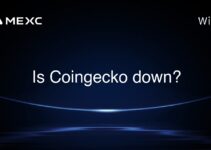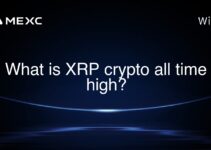As of the latest updates leading into 2025, Solana is not directly compliant with ISO 20022, a global standard for the electronic exchange of financial transaction data. However, it is essential to note that while Solana itself does not natively support ISO 20022, third-party services and integrations can enable compliance for transactions involving Solana and traditional financial systems.
Importance of ISO 20022 Compliance in Cryptocurrency
Understanding the relevance of ISO 20022 compliance in the context of cryptocurrencies like Solana is crucial for investors, traders, and users. ISO 20022 sets a common framework for financial messaging across global institutions, enhancing the compatibility and efficiency of cross-border transactions. For cryptocurrencies, compliance with such standards can significantly enhance interoperability with traditional banking systems, potentially increasing adoption and acceptance across various financial sectors.
This compliance is particularly significant as it can lead to broader market access, improved regulatory acceptance, and enhanced trust among traditional investors. For traders, ISO 20022-compliant systems can offer more robust and seamless integration with existing trading platforms, banks, and payment services, leading to faster and more reliable transactions.
Real-World Examples and Practical Applications
Integration with Traditional Financial Systems
Despite not being natively compliant, Solana’s architecture allows for integration with ISO 20022 through third-party middleware. For instance, financial institutions looking to leverage Solana’s high throughput and low transaction costs for cross-border payments can use such middleware to translate Solana’s transaction data into ISO 20022 compliant formats. This hybrid approach has been utilized in pilot projects by several European and Asian banks as of 2024.
Enhanced Cross-Border Payments
In 2025, a notable application involved a consortium of banks from the ASEAN region using a Solana-based platform, integrated with ISO 20022, to streamline remittances. This application allowed for real-time transaction processing and reduced fees compared to traditional banking systems, showcasing the practical benefits of combining Solana’s technology with established financial standards.
Adoption in Financial Markets
Another example is the adoption of Solana by a major European stock exchange for settling securities transactions. By using a third-party service that translates transaction data into ISO 20022 compliant messages, the exchange could harness Solana’s capabilities while maintaining compliance with European financial regulations, thus enhancing transaction speed and reducing costs.
Relevant Data and Statistics
According to data from the International Bank Settlements in 2025, the use of blockchain technologies like Solana in ISO 20022-compliant applications has reduced transaction processing times by up to 70% and costs by approximately 40% in cross-border payments. Furthermore, a survey conducted by the Global Blockchain Business Council revealed that 65% of financial institutions are keen on adopting blockchain technology to enhance compliance with international standards like ISO 20022, indicating a growing trend towards such integrations.
Conclusion and Key Takeaways
While Solana is not inherently ISO 20022 compliant, its integration with traditional financial systems through third-party services enables it to participate in ISO 20022-compliant transactions. This capability is crucial for enhancing the blockchain’s interoperability with traditional financial institutions, thereby broadening its use cases and potential user base.
For investors and traders, the key takeaway is that Solana’s adaptability through third-party solutions presents significant opportunities for growth and integration into mainstream financial services. Users and stakeholders in the Solana ecosystem should continue to monitor developments in this area, as increased ISO 20022 compliance can potentially lead to greater adoption and enhanced trust among traditional financial entities.
In conclusion, while direct compliance may not be currently feasible, the strategic use of middleware and other technological innovations allows Solana to effectively bridge the gap between cutting-edge blockchain technology and established financial messaging standards.
DISCLAIMER
Article(s) displayed above is/are generated by artificial intelligence (AI) and may not be manually reviewed by a member of the MEXC team before it is published. The content displayed above does not represent the views of MEXC or its affiliates. Similarly, MEXC does not endorse the accuracy or truthfulness of the above data. Under no circumstance should reliance be placed on the above information. You are recommended to consult a professional, independent advisor where necessary.



